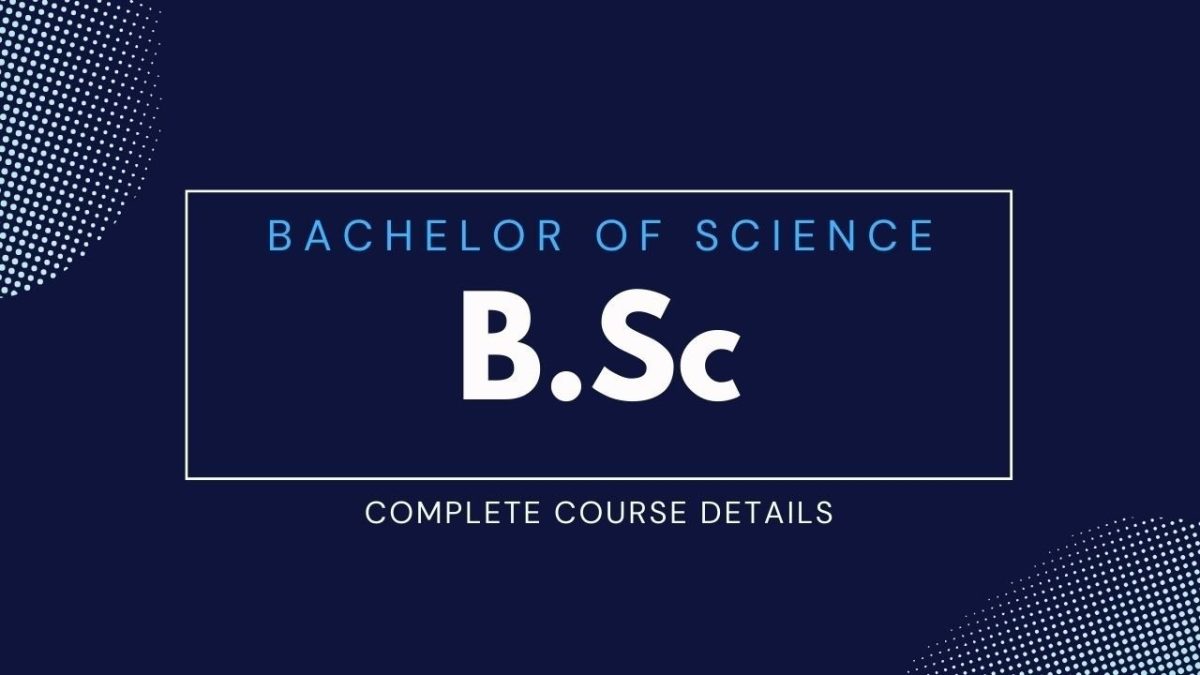The healthcare sector has always been a dynamic and growing field. With advancements in technology and scientific discoveries, the demand for skilled professionals in healthcare is at an all-time high. One of the most impactful educational pathways leading to a career in this sector is pursuing BSc courses in Life Sciences. These programs are designed to equip students with the knowledge and skills required to excel in healthcare, research, and related industries.
In this article, we will explore how BSc courses in Life Sciences are shaping the future of healthcare and why they are becoming a popular choice among students. We will also cover the BSc full form and explain the potential career opportunities that await graduates.
What Is a BSc in Life Sciences?
The BSc full form stands for Bachelor of Science, an undergraduate degree focusing on scientific subjects. A BSc in Life Sciences delves into the study of living organisms, their structure, function, growth, evolution, and interaction with the environment. The program encompasses a variety of disciplines such as biology, biochemistry, microbiology, biotechnology, genetics, and molecular biology.
The interdisciplinary nature of Life Sciences makes it an essential area of study for understanding human health, developing medical technologies, and addressing global challenges like pandemics and environmental sustainability.
Why Choose a BSc in Life Sciences for a Career in Healthcare?
- Relevance to the Healthcare Industry
Life Sciences are deeply intertwined with healthcare. From understanding the basics of human anatomy to exploring the molecular mechanisms behind diseases, the field provides a comprehensive foundation for medical sciences.Students studying Life Sciences learn about:- Disease prevention and treatment
- Drug development and pharmacology
- Diagnostic techniques
- Genetics and personalized medicine
- Diverse Career Opportunities
A BSc in Life Sciences opens doors to various career paths in healthcare and related industries. Graduates can pursue roles such as:- Biomedical Scientist
- Genetic Counselor
- Clinical Research Associate
- Medical Laboratory Technologist
- Public Health Specialist
- Focus on Innovation and Research
Healthcare is a field that thrives on innovation, and Life Sciences play a key role in driving breakthroughs. During a BSc in Life Sciences, students gain exposure to cutting-edge research techniques, enabling them to work on advancements like:- Vaccines and immunotherapy
- Gene editing technologies like CRISPR
- Artificial organs and tissue engineering
- Data-driven approaches to disease prediction and prevention
- Preparation for Advanced Studies
Many students use their BSc in Life Sciences as a stepping stone to advanced degrees such as Master’s (MSc), PhD, or professional courses in medicine, pharmacy, or public health. These further studies allow graduates to specialize in areas of interest and access higher-paying roles in healthcare.
Core Subjects in a BSc Life Sciences Program
A BSc in Life Sciences covers a wide range of topics, combining theoretical knowledge with hands-on laboratory experience. Common subjects include:
- Biochemistry: Study of chemical processes within living organisms.
- Microbiology: Exploration of microorganisms and their effects on humans.
- Genetics: Understanding heredity and gene functions.
- Molecular Biology: Examining cellular processes at a molecular level.
- Physiology: Study of the normal functioning of living systems.
- Environmental Science: Understanding the interaction between living organisms and their environment.
This interdisciplinary curriculum provides students with the versatility to work in various sectors, including hospitals, research labs, and biotech companies.
Real-World Impact of Life Sciences in Healthcare
- Combating Global Health Challenges
Life Sciences graduates play a crucial role in addressing pressing health issues such as:- Developing vaccines and treatments for diseases like COVID-19.
- Tackling antibiotic resistance through innovative drug development.
- Enhancing cancer treatments with targeted therapies.
- Advancing Precision Medicine
The rise of precision medicine relies heavily on genetics and molecular biology. Professionals with a background in Life Sciences are key players in creating personalized treatment plans tailored to individual patients’ genetic profiles. - Improving Diagnostic Techniques
Modern diagnostics, including advanced imaging and molecular testing, are based on principles studied in Life Sciences. For example, detecting genetic mutations can help predict the risk of inherited diseases, allowing for early intervention. - Promoting Sustainability in Healthcare
Life Sciences also contribute to sustainable healthcare solutions, such as developing biodegradable materials for medical use and creating eco-friendly pharmaceuticals.
Benefits of Pursuing a BSc in Life Sciences
- Strong Foundation in Science
A BSc in Life Sciences equips students with a solid understanding of biological principles, making it easier to transition into specialized roles or further education. - High Demand for Professionals
The healthcare industry is constantly growing, with an increasing need for skilled professionals in areas like biotechnology, clinical research, and public health. - Hands-On Learning
Practical laboratory work is a key component of the course, allowing students to gain valuable experience with tools and techniques used in modern healthcare settings. - Global Opportunities
A Life Sciences degree is recognized worldwide, enabling graduates to pursue careers or advanced studies abroad. - Versatility
The interdisciplinary nature of Life Sciences means graduates are not limited to healthcare alone—they can also explore careers in education, environmental science, and more.
Challenges and How to Overcome Them
While a BSc in Life Sciences offers numerous benefits, it also comes with challenges like rigorous coursework and competition for top jobs. Students can overcome these hurdles by:
- Staying consistent with their studies and seeking help when needed.
- Gaining practical experience through internships or research projects.
- Networking with professionals and staying updated on industry trends.
Conclusion
A BSc in Life Sciences is an excellent choice for those looking to make a meaningful impact in the healthcare sector. It provides a versatile foundation for various careers, from diagnostics and research to biotechnology and public health. With the growing demand for healthcare professionals and the continuous advancements in science, this field offers endless opportunities for innovation and personal growth.
If you’re passionate about biology and its applications in improving human health, enrolling in a BSc in Life Sciences could be the first step toward a rewarding and impactful career.
FAQs
- What is the full form of BSc?
The full form of BSc is Bachelor of Science, an undergraduate degree focusing on scientific subjects. - What are the career options after a BSc in Life Sciences?
Career options include roles such as Biomedical Scientist, Clinical Research Associate, Medical Lab Technologist, and Public Health Specialist. - Is a BSc in Life Sciences suitable for healthcare careers?
Yes, it provides a strong foundation for healthcare careers, including research, diagnostics, and biotechnology. - Can I pursue advanced studies after a BSc in Life Sciences?
Absolutely. Many graduates go on to pursue Master’s, PhD, or professional courses in related fields like medicine, pharmacy, or public health. - How does a BSc in Life Sciences contribute to healthcare?
It equips students with knowledge and skills to innovate in areas such as drug development, precision medicine, and sustainable healthcare solutions.



